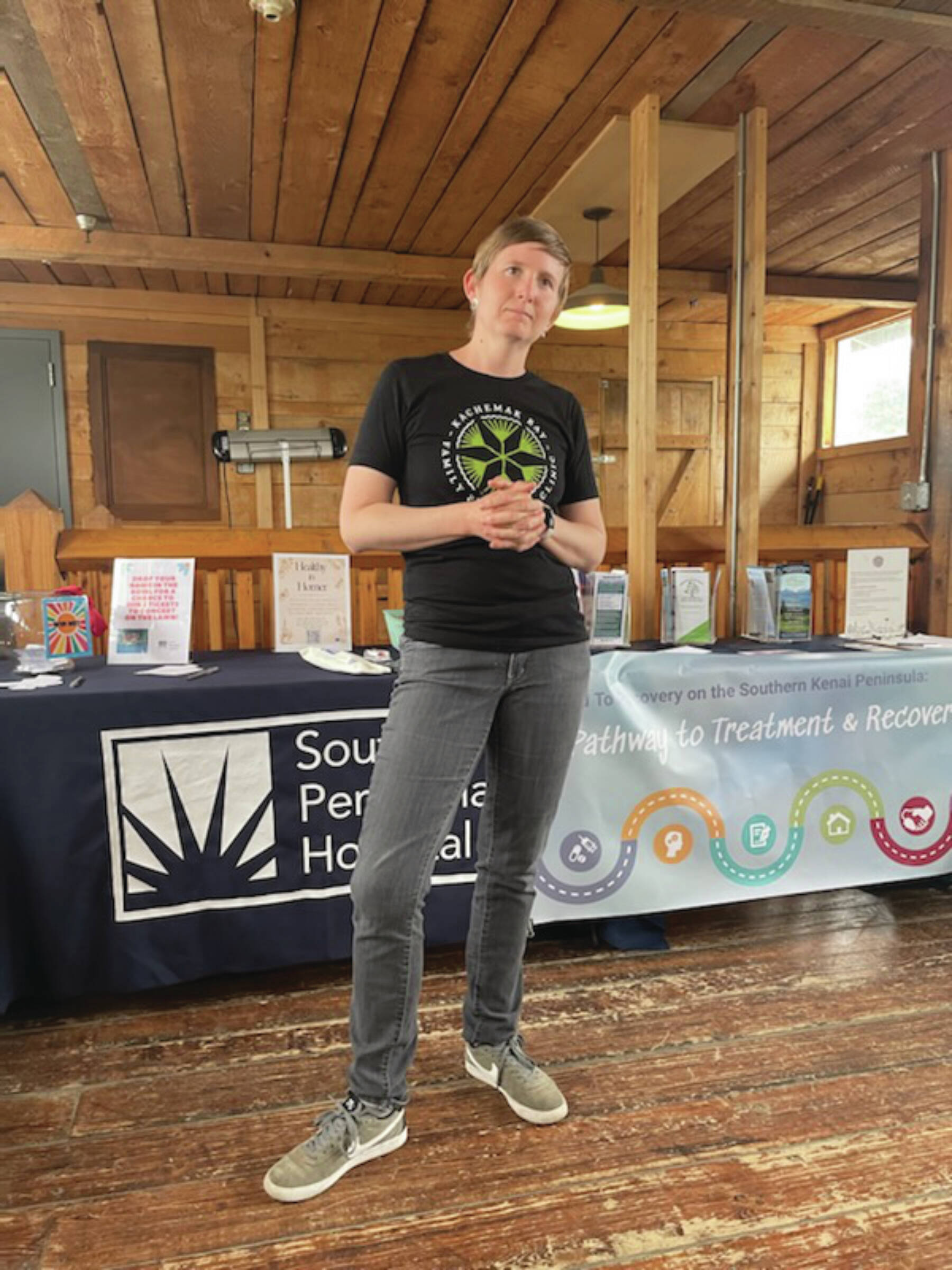On June 20, Dr. Robin Holmes with the Ninilchik Clinic and Kachemak Bay Family Planning Clinic and Annie Garay, Community Health and Wellness Educator from South Peninsula Hospital, provided an information session on “Awareness in Action: Partying Safely in Our Community.”
Nurse Chris Fontaine, South Peninsula Hospital’s sexual assault response nurse, was also there to answer questions. The event was held upstairs at Alice’s Champagne Palace.
Topics at the event included learning how to protect yourself and others while partying; identifying signs of non-consensual intake of substances in social settings; introduction of test drugs for fentanyl and how to identify signs of an overdose and how to respond; and the use of Narcan. Attendees were also offered free Narcan kits to take home and were welcomed to ask questions at the end of each speaker’s session.
The session was conceived by Garay and Holmes after the two started talking about pain reduction in the community and about community concerns around partying and the bar scene, Garay said in an interview with the Homer News.
“We were hearing about it anecdotally, through people we know and through the clinic. As things start picking up in the spring and summer, it seems to be a good season for the conversation,” Garay said.
About 35 people attended the event, including an array of community members: local bar owners and employees, bar patrons who may have experienced events or concerns like those addressed by Holmes and Garay, parents, representatives from local facilities such as South Peninsula Haven House, among others.
“The people who put this workshop together are all really passionate about pain reduction in our various veins of work, so we’re excited to be collaborating on this,” Garay said during the event. “It’s important to have a platform and place for people to come together and share information on issues like these that we’re seeing all over the country.”
Garay encouraged participants to keep the meeting a “safe space” and respect the privacy of others during the discussion.
Holmes discussed social drinking situations and avoiding unintentional intake of substances or “spiked drinks.”
Fundamentally, she said, “if someone is giving you something that is making you more messed up than you want to be, that is an assault and that’s how we need to characterize this.”
She discussed what the environment around spiked drinks might look like, what to do if you’re worried about whether your drink has been spiked, and preventative measures. Holmes pointed out in her conversation that situations like these do not just impact women, but that men are also vulnerable to intoxicants.
“I think one of the most common questions I get is how to know if someone has been drugged intentionally and the basic answer to that is if you feel messed up and you didn’t feel like you ingested enough to feel the way you do, you should be suspicious,” Holmes said. “A lot of the time, whatever you took might not have had a taste or a smell; your drink didn’t change color. If you feel more intoxicated than you should, do something about it. Find a trusted person to help watch you so you aren’t in a scary situation.”



